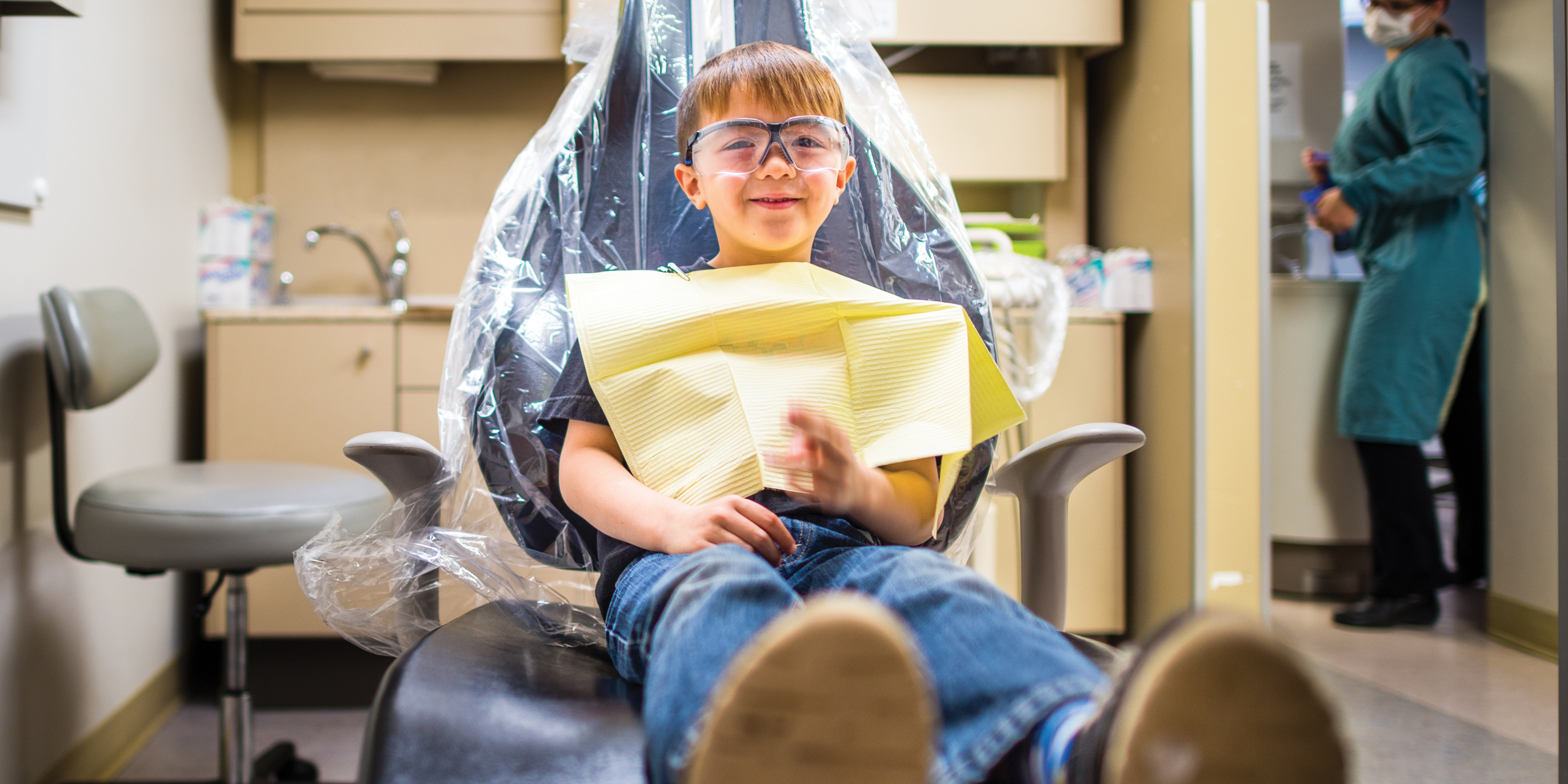
Low-income patients and families get access to care, and U of A dentistry students get hands-on experience through a community partnership.
It was Saturday and U of A dentistry student Connor Grimes was doing his regular volunteer shift at a community clinic in Edmonton's inner city when a 17-year-old girl arrived in severe pain. Her tooth was decaying and infected, and part of it had broken off. There was no way to fix it, but Grimes was able to pull the tooth, giving the teen some much-needed relief.
During his first few years volunteering at the Boyle McCauley Health Centre Dental Clinic, Grimes sterilized instruments and did triage work with the line of patients waiting to be seen. Now, the third-year dentistry student works directly with patients and has become aware of the number of people who have no access to dental care. "It opens your eyes to the barriers people have," he says.
3,000+: Patients each year who will receive dental care because of the donor-funded expansion of the Boyle McCauley dental clinic
140: Days each school year that dentistry students will provide services at the clinic - supporting the community and gaining invaluable experience
8: Examination chairs available in the expanded clinic, doubling the number of patients that dentists and students can accommodate at one time
755: Emergency visits to the dental clinic in 2017-18. With dental problems the most common physical health issue experienced by the homeless, one of the goals of the clinic is to lessen the load on hospital emergency rooms.
Many patients who come to the clinic face obstacles such as homelessness, mental illness and substance abuse, says Cecilia Blasetti, executive director of the Boyle McCauley Health Centre. They may not be able to afford or feel confident accessing most clinics, she says.
Emergencies are accommodated at the Boyle McCauley clinic as much as possible but people often wait a month or more for an appointment.
But thanks to the ongoing support of U of A donors and a community partnership with the Boyle McCauley Health Centre, the clinic will become a teaching site for dentistry and dental hygiene students who will work there during the school year. A new location with twice the capacity will increase access to care for vulnerable populations - and create more qualified, compassionate dentists in the process.
"People who need treatment the most are not getting it," says Paul Major, professor and chair of the School of Dentistry. "This partnership is about social accountability - working with the community to address its health concerns."
With the clinic becoming a key part of the curriculum, Major believes more students will do pro bono work in their dental practice or volunteer at a community clinic once they graduate.
Grimes is one who intends to continue giving back to this underserved community.
"It's a nice feeling when you can impact a patient like that," he says of the teenager he helped. "She felt 100 times better. She was so happy."



